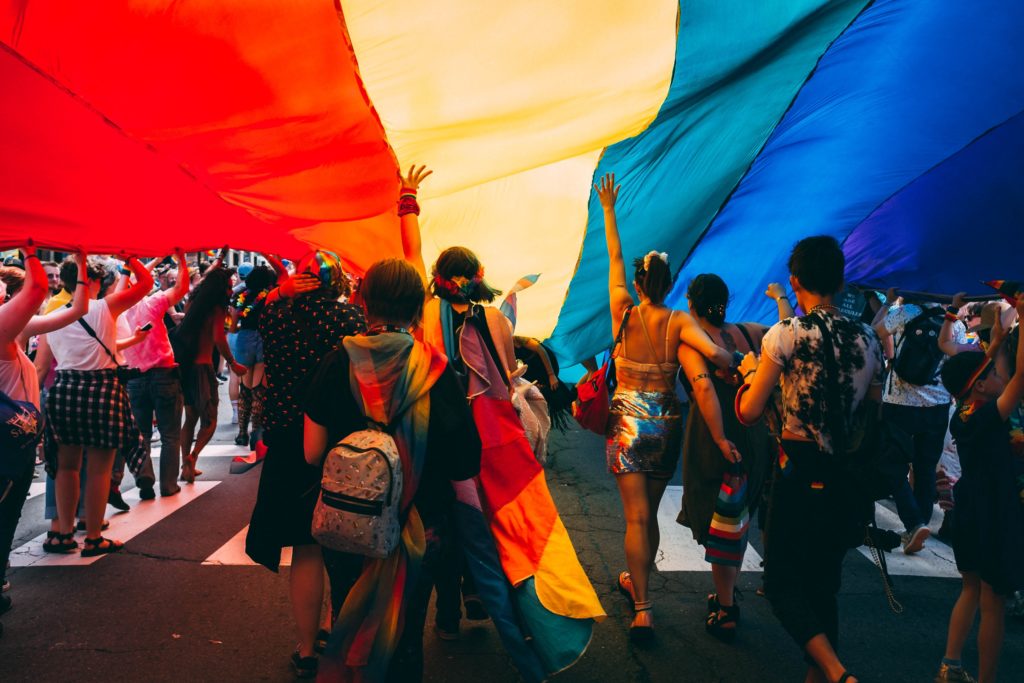This website uses cookies so that we can provide you with the best user experience possible. Cookie information is stored in your browser and performs functions such as recognising you when you return to our website and helping our team to understand which sections of the website you find most interesting and useful.

Post Pride month – LGBTQI+ voices: learnings from lived experiences.
Throughout June’s Pride month many countries around the world celebrated and pushed for LGBTQI+ rights – we wanted to share some learnings from lived experiences based on a McKinsey & Company LGBTQI+ workplace discrimination study*.
This began with identifying the unique challenges facing the community’s employees:
- Coming Out: foremost among them is coming out – the study identified that
- this is especially challenging for junior employees
- women are far less likely than men to be out
- coming out is more difficult for people outside Europe and North America
- people who are open about being LGBTQI+ often have to come out repeatedly
- Discrimination: LGBTQI+ employees report substantial barriers to advancement: many believe that they have to outperform non-LGBTQI+ colleagues to gain recognition. All discrimination may not be blatant but whether overt or unspoken, it remains limiting
- Microagressions: For many LGBTQI+ employees, office life means navigation a series of microagreesions such as hearing disparaging remarks about themselves or people like them. They are often misgendered and referred to by a pronoun which does not accord with their gender identity
- Isolation: LGBTQI+ people are underrepresented in corporate environments; many report being an “only’ in their organisation or on their team. This can fuel anxiety and isolation, which often results in other disadvantages
The study identified 6 keys changes to making the workplace friendlier for the LGBTQI+ employees
- Don’t stumble into microgressions: be careful to not make assumptions about people’s personal lives or risk misgendering them. Ask for and then use the pronouns that each individual uses to self-identify
- Set a meaningful public example
-
- refer to LGBTQI+ relationships the same way you refer to other relationships
- display visible symbols of support; encourage employees to do the same
- sponsor LGBTQI+ events such as Pride; demonstrate your support visibly
- Educate teams: setting an example can decrease the frequency of microagressions, root out unconscious bias and promote respect towards LGBTQI+ colleagues
- Strengthen the recruitment pipeline: you need to work on hiring and promoting a diverse groups of individuals. Blind résumé screening (removing names, gender signifiers and affinity-group affiliations) is good practise
- Sustain support networks: resource and ally groups for LGBTQI+ employees play an important role, as do sponsors, be they LGBTQI+ or not: there is strength in numbers
- Strengthen your policies: it is critical to implement all the policies which have become standard at workplaces that promote comfortable and safe environments for LGBTQI+ employees
Business benefits
- Boosting recruitment and retaining talent: diversifying your recruiting team should be done thoughtfully: the goal is to deepen diversity and inclusion, not to make a show of your commitment
- Driving business: the study reveals that greater workplace inclusivity translates into business opportunities for companies
- Cultivating capabilities: a number of particularly strong skills among members of the LGBTQI+ community: sensitivity, empathy, the ability to deal with adversity – these need to be harnessed and encouraged
In conclusion we would like to reference Moizes Palma, chief risk officer of HSBC Argentina, an ally executive: “[..} it is not your sexual orientation or gender identity [which matter] but your character. An inclusive environment can change the lives of our people – and how a company with a truly inclusive values can help both one person and the entire society”.
- with thanks to Peter Bailinson McKinsey Washington DC office, Wiliam Decherd Dallas office, Diana Ellsworth, Atlanta office and Maital Guttman, senior regional manager for diversity and inclusion Atlanta office.
